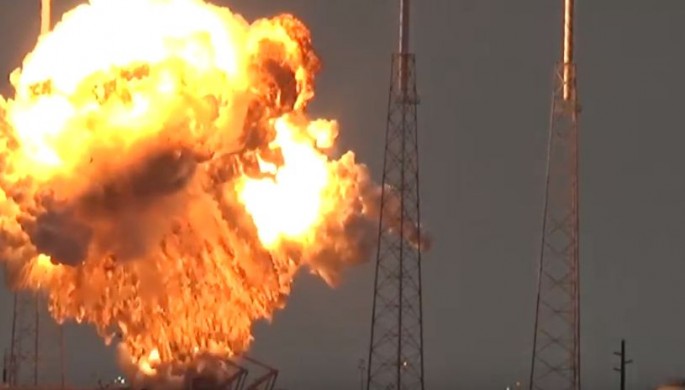NASA has issued a statement saying the explosion that destroyed a SpaceX Falcon 9 launch vehicle and AMOS-6, its $200 million satellite payload, won't delay the launch of the OSIRIS REx mission to the asteroid Bennu on Sept. 8.
The agency made the announcement following concerns the huge explosion and fireball that obliterated Falcon 9 on Sept. 1 at Space Launch Complex 40 might have damaged the Atlas V rocket that will launch OSIRIS Rex located at Space Launch Complex 41, slightly over a mile from SpaceX's launch pad where the explosion occurred.
"We remain confident in our commercial partners and firmly stand behind the successful 21st century launch complex that NASA, other federal agencies, and U.S. commercial companies are building on Florida's Space Coast," said NASA.
"Today's incident -- while it was not a NASA launch -- is a reminder that spaceflight is an incredible challenge, but our partners learn from each success and setback.
NASA, however, is unable to confirm if the blast will affect missions to the International Space Station (ISS). It said the situation at the Cape is being evaluated, and it's too early to know whether the incident will affect the schedule for upcoming NASA-related SpaceX launches to the ISS.
"If there are SpaceX mission delays, other cargo spacecraft will be able to meet the station's cargo needs, and supplies and research investigations are at good levels."
It's all systems go for the $800 million OSIRIS-Rex mission, however.
"The launch for NASA's OSIRIS-REx mission remains on track for Sept. 8. Initial assessments indicate the United Launch Alliance Atlas V rocket and OSIRIS-REx spacecraft are healthy and secure in the Vertical Integration Facility at Space Launch Complex-41, which is 1.1 miles from SpaceX's launch pad where the incident occurred."
The Origins, Spectral Interpretation, Resource Identification, Security, Regolith Explorer or OSIRIS REx is a NASA asteroid study and sample return mission. It will to study asteroid 101955 Bennu, a carbonaceous asteroid and in 2023 return a sample to Earth for detailed analysis.
If successful, OSIRIS-REx will be the first U.S. spacecraft to return samples from an asteroid.
The returned asteroid material might enable scientists to learn more about the formation and evolution of the Solar System; initial stages of planet formation and the source of organic compounds that led to the formation of life on Earth.
The 45th Space Wing said the "anomaly" that destroyed the Falcon 9 occurred during propellant loading of the vehicle.
SpaceX confirmed the cause in a statement that said the anomaly "originated around the upper stage oxygen tank and occurred during propellant loading of the vehicle. Per standard operating procedure, all personnel were clear of the pad and there were no injuries."
The static test fire that destroyed Falcon 9 is the last milestone a launch vehicle goes through prior to launch. The "strongback", the structure that supports the Falcon 9 until just prior to launch, was heavily damaged during the explosion.



























